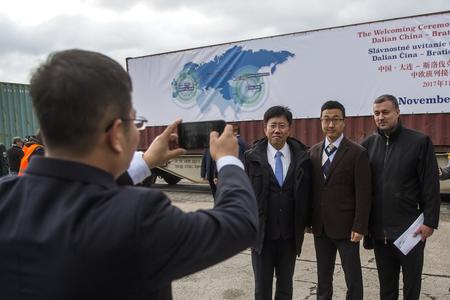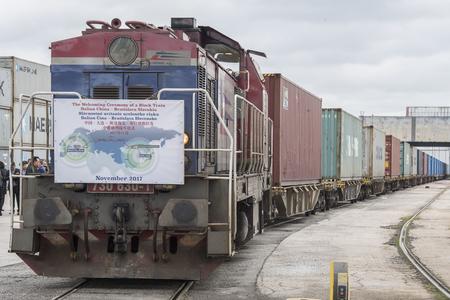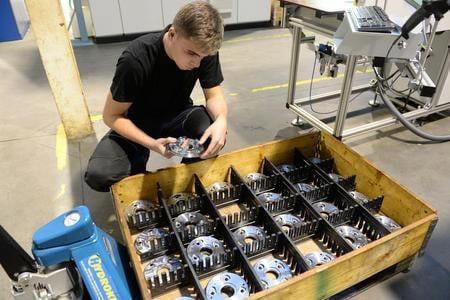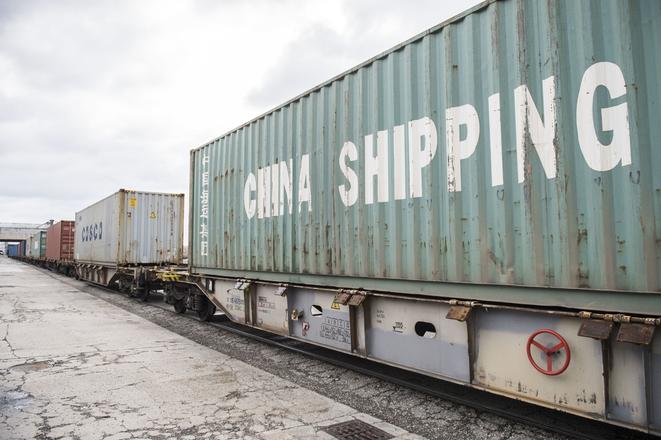Sino-Slovak relations are getting back to normal after a cool off lasting for a year, Slovak Prime Minister, Robert Fico (Smer) said on Monday, November 27, following the sixth summit of governments of the 16 central and eastern European countries and China, in Budapest.
Slovakia has started to cooperate with China in railway-cargo transport and in customs. Furthermore, Bratislava has asked for an acceleration in the issuing of certificates for high-quality Slovak foodstuffs designated for export, with cooperation in the energy sector field being revived, too.
Fico ascribes the cooling of political and economic relations with China to a private meeting between Slovak President Andrej Kiska and Tibetan spiritual leader, the Dalai Lama. He believes that after a year in the cold with China, things are getting back to normal.
“We feel China’s strengthening interest in Slovakia and I welcome it, as we cannot gamble with a strategic partner like this in the future,” said Fico as cited by the TASR newswire.
The Slovak prime minister said he will also hold a short bilateral meeting with his Chinese counterpart Li Keqiang on November 27, which he views as a confirmation of this new trend and the relationship returning to normal.
“I personally care about it very much, as China is a promising partner for us,” underlined Fico.
Slovak-Chinese trade has been constantly growing and it currently amounts to almost $7 billion (€5.86 billion). The fact that the first railway cargo deliveries have started to appear from China to central Europe on a route via Slovakia is important.

“We all took note of the first cargo train from China in early November 2017 that ended at the Dobrá terminal [Košice Region],” said Fico. “A wide-gauge rail is used on the route leading from China via Russia to the Ukraine and then the cargo is transhipped to Slovak [narrow-gauge] rails at the Dobrá terminal, thus significantly increasing the volume of Slovak cargo. I believe we have the capacity for the several hundreds of cargo trains coming from China until the end of 2018, and if it goes on like this, Slovakia has a great geographical position that is extraordinarily important particularly for rail-cargo transport from the eastern part of the world, i.e. from China, to Europe,” said Fico.

Slovakia is successfully cooperating with Chinese authorities in the field of customs, too.
“We signed a memorandum on customs cooperation in Riga that was later joined by Kazakhstan, Russia and the Ukraine,” said Fico. “We need to have a smooth information flow on goods that go from China to Europe and vice versa.”
Fico in his speech at the Budapest summit asked the Chinese side to speed up the process of issuing certificates for high-quality foodstuffs, which would enable Slovakia to export food in this market. He stated that it is absolutely evident that high-quality food from our region is in high demand in China.
The prime minister also talked about reviving relations in the energy sector field with the Chinese side showing interest in cooperating with companies like the Nuclear Energy Research Institute (VÚJE) and the Nuclear and Decommissioning Company (JAVYS).

He was also pleased to hear that 30 top robotic companies are expected to arrive in eastern Slovakia to communicate with the leader in this segment of the market in the country, the Slovak company Spinea.



 (source: TASR)
(source: TASR)